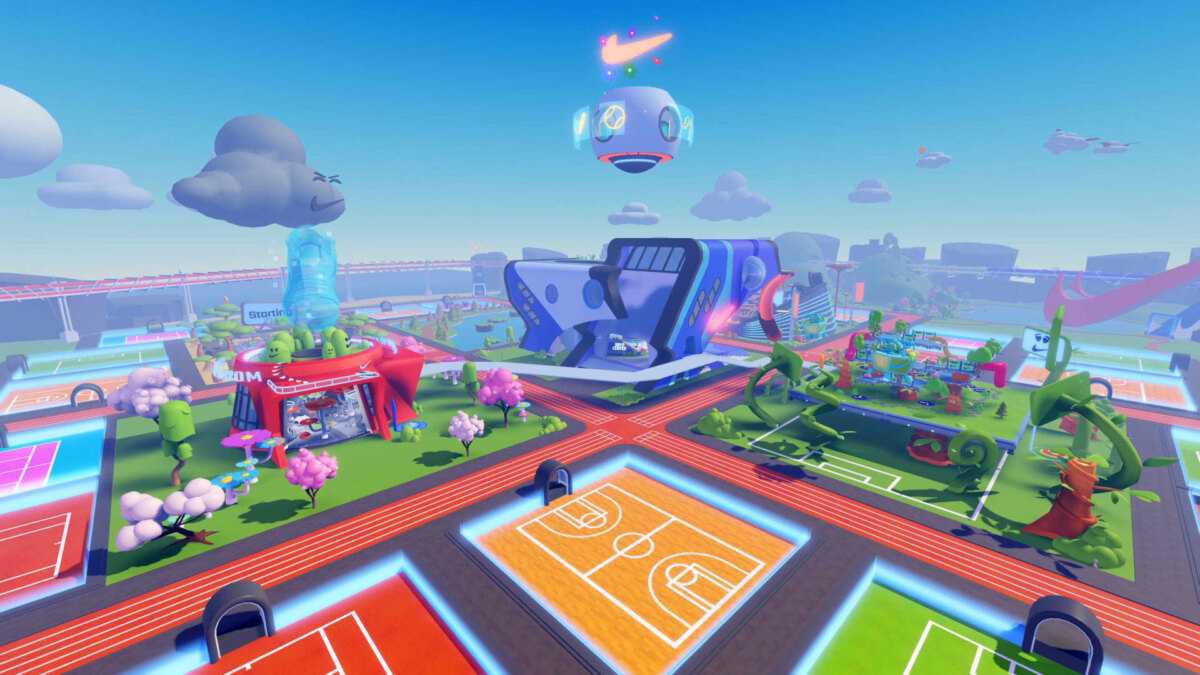2022 will be a year of dramatic innovation.
Schumpeter, the Austrian economist, articulated the nature of economic cycles, that every downturn is followed by a new era-defining upturn. Changing attitudes and entrepreneurial mindsets drive industrial revolutions and accelerated innovation. 57% of the Fortune 500 were founded during a downturn, 92% of patents are filed during or just after a downturn.
2022 is one of these moments. The shake-up of a global pandemic has led to a shake-out of markets, where consumers drive new agendas, businesses embrace new models, and new leaders rise up. This is the year when the global economy will surpass $100 trillion for the first time, growing by 4% globally, an average that hides dramatic and dynamic changes.
With more change in the next 10 years than in the last 250 years, looking ahead is not easy, in a world where stable and incremental progress have given way to complexity and uncertainty. Yet a future perspective is what every stakeholder seeks – a way forwards, new opportunities to grow, a better world. We need leaders to see and shape this future, and help us get there.
So what’s your future potential?
Now, more than ever, your potential as a business, and a leader, is defined by how you see your future – your boldness of vision, diversity of perspective, thoughtfulness of choice. How will you make sense of change? How will we seize the new opportunities before others? How do we connect to drive innovation and transformation? And how will progress deliver purposeful impact and profitable growth?
Here are a few clues to succeeding in the year ahead:
January 2022: Accelerating change
- Probable: GM’s Mary Barra kicks off the Consumer Electronic Show 2022 in Las Vegas, as a mobility revolution gathers speed. Her multi-billion dollar investment in Cruise autonomous driving technology has transformed GM, as it seeks to compete in a new world order. This year’s CES also includes the Indy Autonomous Challenges for EV racing cars with a $1 million prize.
- Possible: Tesla’s share price falls dramatically. While Musk says Tesla is an energy rather than mobility company, there are now over 120 brands competing in the EV market. Investors look to others, including the world’s largest, BYD, and fastest growing, Nio. At the start of 2022, Peter Rawlinson’s Lucid had a market capitalisation per car sold of $5 million, Tesla $2.3m, and Rivian $1.2m; compared to Toyota $120k and BMW $30k.
February 2022: Chinese revolution
- Probable: China introduces its new digital yuan, one of the first sovereign digital currencies, just in time for the Chinese New Year, when “lai see” red envelopes traditionally change hands. The e-CNY wallet app will be showcased during this month’s Winter Olympics being held in Beijing (the first city to host summer and winter games), but faces stiff competition from Alipay and WeChat.
- Possible: Good Doctor, already the world’s largest digital healthcare platform, developed by China’s Ping An, the world’s second largest insurance business, enters global markets offering low price healthcare via videophone and local kiosks. Huge advances are being seen in every aspect of medicine, from remote diagnostics to cancer therapies based on mRNA techniques that advanced as Covid vaccines.
March 2022: Resource constraints
- Probable: Germany closes its last nuclear power stations, haunted by safety concerns, leaving new chancellor Olaf Scholtz and his green colleagues increasingly dependent on natural gas from Russia. Meanwhile France commits to build a new generation of nuclear plants, recognising it as one of the cleanest and most reliable sources of energy, but considering a rebrand as “elemental energy”.
- Possible: Energy prices continue to soar across the world, as does the price and demand for other raw materials, most spectacularly lithium and copper for electric vehicle batteries, largely sourced from Australia and Latin America. Energy drives sharp rises in logistics and manufacturing costs, exasperated by continued supply chain chaos, leading to sharp rises in everything from food to vehicles, and significant inflation.
April 2022: Metaverse hype
- Probable: Gaming platforms like Roblox have become the new shopping malls, but also the space where GenZ connects. BTS recently held the world’s largest music concert in Fortnite’s “Party Space“, Gucci launched pop-up stores with limited edition real products, Nikeland hosts virtual sporting events, and Tinder this month launches “Single Town” as a new meta dating space, where avatars dress their best and meet without consequence.
- Possible: Facebook‘s transformation into Meta Platforms looks increasingly faddish. Maybe Zuckerberg forgot that his reimagined internet as an immersive world requires a VR headset in most cases. Apple sold 40 times more AirPods than Meta sold Oculus headsets in 2021, and has a much richer metaverse-potential with the evolution of its AppStore, plus the imminent launch of its intelligent eyewear, iGlass.
May 2022: Digital normality
- Probable: The ABBA Voyage global tour kicks off in a specially-made venue at London’s Olympic Park, with the Swedish pop group appearing as holograms, selling out physical venues. Tickets start at $100, to be part of an entirely virtual experience, created by George Lucas‘ Industrial Light and Magic. 70 year olds Anni-frida and Agnitha, Benny and Bjorn, must be sitting at home in the their (now separate) saunas laughing.
- Possible: The phrase “digital” is seen as increasingly redundant. 85% of consumers now believe they “live in a digital world”, and don’t see a divide between physical and virtual. “Hybrid” or “liquid” or “omni”-experiences are now their expectations everywhere. At the same time, the phrase “digital transformation” in business is equally meaningless. The challenge is not to automate towards sameness, but to transform to better.
June 2022: Exponential markets
- Probable: India is now the world’s most populous nation with 1.5 billion citizens. While its fast growth rival, China, has often been seen as a decade ahead in development, India is rising faster. As the Indian tech diaspora – led by Satya Nadella, Sundar Pichai and Parag Agrawal – set global standards, local businesses like Mukesh Ambani’s super-app Jio Platforms are transforming Indian markets and daily lives.
- Possible: Stripe, the payment business founded by two Irish brothers, Patrick and John Collison, is the world’s biggest IPO of 2022. At the start of the year it was valued at $95 billion, and now worth over $200 billion. It builds APIs that web developers can use to integrate payment processing into their websites and mobile applications. Other IPOs this year include Brewdog, Instacart, and Starlink.
July 2022: Changing lifestyles
- Probable: Le Tour de France adds a new format this year with “Le Tour Femmes“, an 8-stage cycle race for women, sponsored by Zwift, the online cycling platform which created virtual tours during the pandemic, and continues to enable anyone to participate in the elite race from their homes. Similarly La Liga, Spain’s premier soccer league, is partnering with Dapper Labs to enable anyone to participate in its games.
- Possible: As the Covid-19 pandemic finally subsides, 10% of companies continue with a remote working approach, 20% have demanded all employees return to offices, while 70% have continued to operate with a hybrid model. Those demanding a physical return have seen the largest voluntary exits, as companies have grappled with new EVPs to attract talent, changing lifestyle aspirations, particularly of younger people.
August 2022: African entrepreneurs
- Probable: Kenya‘s Konza Technology City is just one of the vibrant start-up hubs across Africa’s “silicon savannah“. In the same way M-Pesa ingeniously transformed the way people transfer money, other simple or frugal innovations by African entrepreneurs are disrupting agriculture, education, healthcare, and more. Aerobotics to Flutterwave, Sokowatch and Sunculture are great examples.
- Possible: Lego‘s 90th anniversary is marked with fans voting for a return of its basic building blocks, which were a particular hit with adults during months of pandemic lockdown. “Creative play“, as the brand’s name translates, has taken on a bigger meaning, with Lego seeking to build creative spaces and design schools, encouraging human collaboration in an increasingly remote and digital world.
September 2022: Space-age living
- Probable: China launches its new Tiangong (translated as “Heavenly Palace”) space station, with a warning to Elon Musk and others to take more responsibility for Earth’s orbit which is increasingly crowded with mini satellites. It will be continuously manned by 3 astronauts with a focus on scientific research, and considerably smaller than the ISS which was launched in 1998 and will be retired in 2024.
- Possible: Lunar Gateway is another new space station launched by NASA in partnership with Canada, Europe and Japan. It will orbit the moon, therefore the first in deep space, and focus on creating a permanent human base on the moon’s surface, which in itself is seen as a key staging post in eventual travel to Mars and beyond. SpaceX, with its $2.9 billion NASA contract, will provide transportation on its new Starship rocket.
October 2022: Carbon catalysts
- Probable: Brazil’s elections are a moment of hope for the Amazon. The country is home to 60% of the vast rainforest which has gone from carbon sink to a carbon source over the last decade. Deforestation has soared by over 40% since populist president Bolsonaro took office in 2019 and removed restrictions on illegal logging, mining, cattle-ranching and land-grabbing.
- Possible: As the climate crisis becomes more acute, and sustainability shifts from compliance to core business, there is a recognition that collaborative actions are key to driving real change – public-private partnerships and cross-industry collaborations. The Sustainable Aviation Buyers Alliance, the Clean Energy Demand Initiative, and the Lowering Emissions by Accelerating Forest Finance are examples.
November 2022: Arabic ambitions
- Probable: Jeddah Tower becomes the world’s tallest building, surpassing regional rival UAE’s Burj Khalifa, and a physical manifestation of KSA’s Vision 2030 to move away from a dependence on oil, and towards a modern state. Neom, its futuristic city being constructed near the Red Sea, is another example. Meanwhile, Abu Dhabi unveils the world’s largest solar power plant with 3.2 million solar panels.
- Possible: FIFA’s World Cup kicks off in Qatar this month, the first time the soccer tournament has been held in an Arab nation, a Muslim nation, or a winter month. $220 billion has been lavished on facilities and infrastructure, seen as a transformational catalyst for the nation and its reputation on the world stage. 32 countries will compete for the trophy, with England beating Brazil 3:1 in the final.
December 2022: Courageous action
- Probable: CEO tenure is at a record low, an average of 7.2 years for the world’s largest companies, but with 30% of leaders lasting less than 2 years. Being a CEO used to be easy, managing the status quo, to maximise profit. Today, it is a more complex challenge – with diverse stakeholders, unclear choices, and high expectations. In research for my new book, future orientation is now the most critical attribute, driven by curiosity and courage.
- Possible: Last year, the “great resignation” stole business headlines as employees, galvanised by Covid-induced remote working, left their jobs in search of more balanced lifestyles. Now, the “great restructuring” is underway as organisations reimagine workspaces and structures, employment contracts and practices. The 4 day week, working from anywhere, portfolio of jobs, fusing work and life, is becoming the normal.
In a world of such rapid change, what will you do?
Seeking to progress by doing what you’ve always done is unlikely to succeed. Insights and ideas fuel new thinking, new actions that move us forwards. We need leaders who have the courage and vision to create better futures, for themselves, for their organisations and our world.
2022 is a time of huge change, and huge opportunity.
What will you do in 2022?
Feature image / Nikeland in Roblox, Nike































